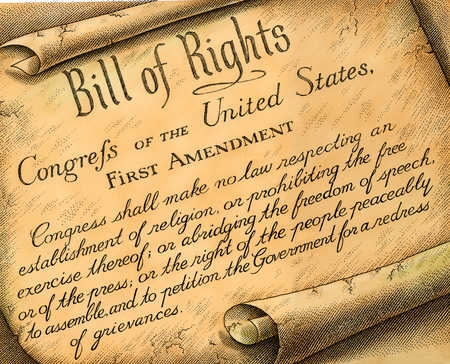The First Amendment & Civil Discourse on College Campuses

The first amendment states that “congress shall make no law respecting an establishment of religion, or prohibiting the free exercise thereof; or abridging the freedom of speech, or of the press; or the right of the people peaceably to assemble, and to petition the Government for a redress of grievances”. Students are often encouraged to express their beliefs and concerns but freedom of speech does have limits. Student affairs professionals have the obligation to educate students on this, why certain forms of speech such as discrimination can be hurtful to others and cause divides on campus. Institutions will have codes of conduct laws for students to follow on campus, which usually will discuss community standards of honesty and respect for persons and property, and responsible use of freedom. The First Amendment does not protect behavior on campus that consists of harassment or threats, or any behavior that creates a hostile environment for vulnerable students.
Universities have to balance the requirement of free speech with issues of civility, respect and human dignity. “Certain words or forms of expression may fall under the protection of the First Amendment, but that does not mean all protected forms of speech and expression inherently contribute to the meaningful exchange of ideas” (Baxter& Magolda, 2011). Many campuses have adopted policies that has banned hateful expression, with consequences of various punishments such as expulsion. “Student affairs officers would be wise to approach the issues of hate speech and hate crimes by using a balanced approach that takes into account all legal requirements and carefully considers the ethical, moral, and educational implications of all programs, policies, and procedures designed to address these important issues”(Baxter& Magolda, 2011).

Free speech is not hate speech. Free speech should be used on campuses to speak on individual rights and concerns. Hate speech causes offence and can make others feel alienated form their own society. It is important for college campuses to create an environment that is welcoming to all. Hate speech on campus can increase more violent outbursts and discrimination. Students need to be educated on the differences of free speech and hate speech. While restricting speech may seem like the best approach to fix campus tensions it does not. College administrators should look to implement real social change by addressing the underlying causes of inequality and bigotry “Instead of symbolic gestures to silence ugly viewpoints, colleges and universities have to step up their efforts to recruit diverse faculty, students, and administrators; increase resources for student counseling; and raise awareness about bigotry and its history”(Baxter& Magolda, 2011).
What are some tools Student Affairs can use to educate students rather than censor them?
Reference
Baxter Magolda, M. B., & Magolda, P. M. (2011). Contested issues in student affairs : Diverse perspectives and respectful dialogue (Vol. 1st ed). Sterling, Va: Stylus Publishing.




